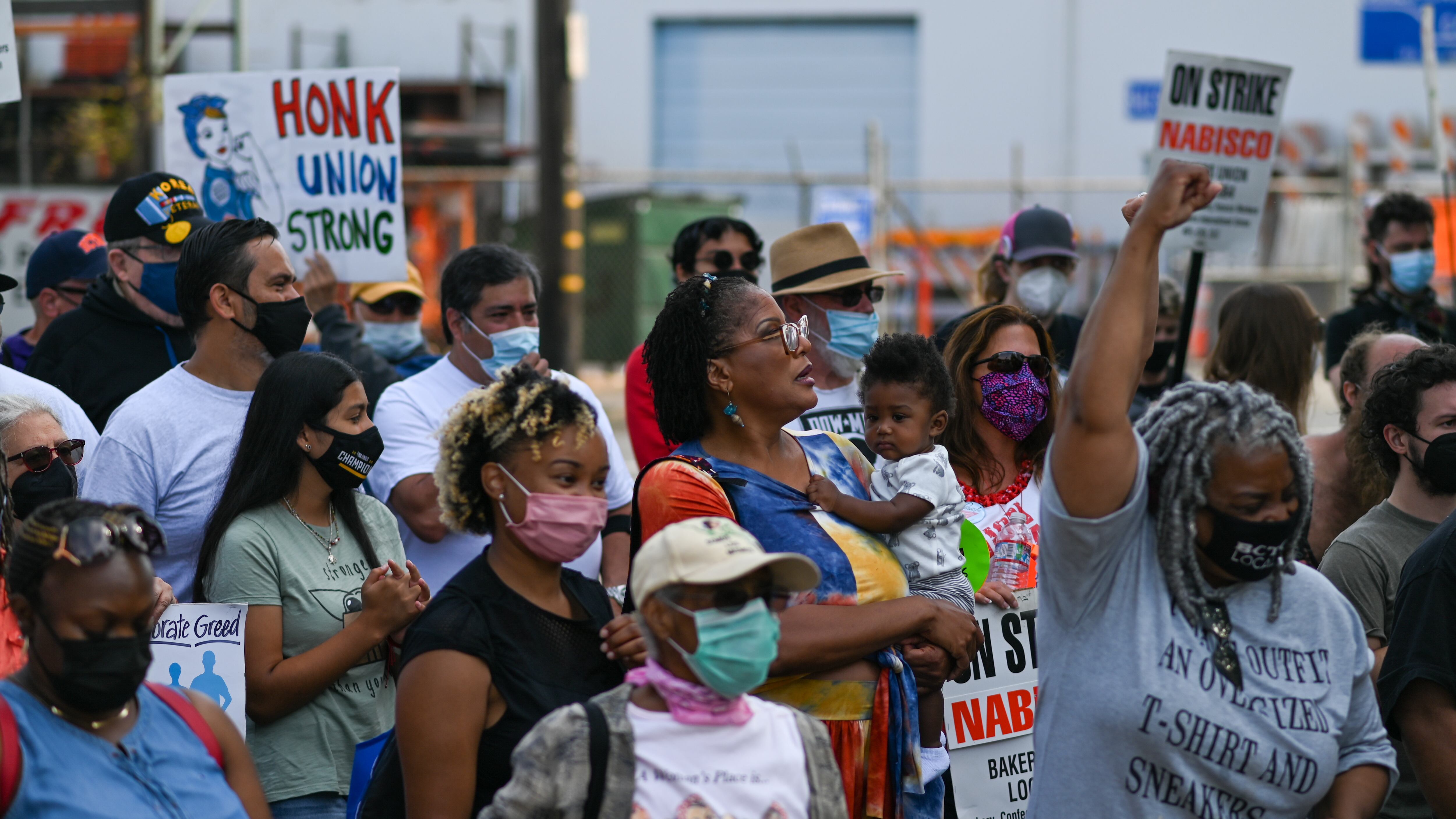The monthlong strike by the bakers’ union at the Nabisco factory in Northeast Portland came to an end on Saturday—against the will of Portland workers—when fellow bakers’ union members across the country overwhelmingly voted in favor of adopting the proposed contract that union representatives and Mondelez International drafted during bargaining.
Most Portland members of the Bakery, Confectionery, Tobacco Workers and Grain Millers International Union Local 364 that struck outside the bakery—just around 200 total—voted against the contract on Thursday, unhappy with how it proposed creating weekend crews that would take away most weekend overtime opportunities from weekday workers.
The contract does, however, keep the health care plan from the previous contract, which expired this summer and which union members desperately wanted to retain.
Local union representatives tell WW that both new and existing employees could bid for the contested weekend shifts and those workers would have three 12-hour shifts but get paid for 40 hours.
Portland union members say that’s no better than Mondelez’s last offer, which would have shifted the schedule to an “alternative” workweek that would reduce overtime.
The new contract lasts four years. Local 364 vice president Mike Burlingham voted against the contract. When asked if there was any way the local union could fight it or take further action, his answer was simple.
“Unfortunately not.”
Many of the striking bakers have been without income for over a month, spending long hours on the picket line. Nearly 200 members of the local bakers’ union—every union member in the building—went on strike. So did other unions at the bakery, including Teamsters, engineers and electricians.
This week, they will return to the company they’ve been fighting bitterly for over a month.
The strike began Aug. 10, with about two dozen bakers’ union members holding signs along Northeast Columbia Boulevard. It quickly escalated.
Two weeks into the strike, bakers’ union members set up a station down by railroad tracks near the factory to stop incoming supply trains operated by railroad union members from reaching the bakery. Eventually, Portland police kicked strikers off of the land after the company determined it was, in fact, owned by Mondelez.
Outside supporters of the strike soon intensified tactics by blocking vans carrying strikebreaking workers from entering and leaving the facility. Protesters found out where Mondelez was loading strikebreakers onto buses and vans to transport them to the bakery. They routinely blocked vans from entering and leaving that parking lot, often clashing with security guards hired by the strike staffing company Huffmaster Crisis Response.
The strike elevated to legal threats, too.
Mondelez’s attorneys sent a cease-and-desist letter to the union on Aug. 31, and the next day the union’s attorney Margaret Olney replied that most of the actions outlined in the letter were not performed by union members themselves, but outside supporters. While Mondelez’s attorneys initially said the company would be pursuing a temporary restraining order against the union, they told Olney five days later they were no longer seeking one.
And on Tuesday, a Teamster named Jesse Dreyer filed a federal lawsuit against Huffmaster, alleging one of its security guards assaulted him the day before.
